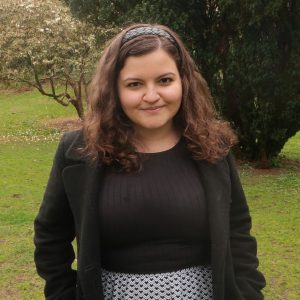Fellow
Researcher at the University of Bergen, Department of Government
Ana Côrtes is a researcher at the Centre for Research on Discretion and Paternalism, at the University of Bergen, Department of Government, and a fellow at LawTransform. At the University of Bergen, she is also the co-leader for “SkeivForsk – the cross-faculty group for LGBTQ+ research”.
Côrtes holds a PhD in Public Law, with distinction, from the University of Coimbra (Portugal), and carried out part of the work on her PhD at LawTransform. She was awarded a mixed grant from the Foundation for Science and Technology – FCT for her research work in Portugal and Norway. Her PhD research topic was the recognition of rights for LGBTQ persons in countries with a civil law legal system, and her research interests include gender, sexuality, diversity, social movements, and legal mobilisation. She also holds a master’s degree in Law and Development from the Getulio Vargas Foundation – FGV and a bachelor’s degree in Law from the University of São Paulo – USP (awarded by USP for the best thesis of the year 2015).
Côrtes is an affiliated researcher at the University of Coimbra Institute for Legal Research – UCILeR (Portugal) and a member of the Getulio Vargas Foundation’s research centres Gender and Law and Justice and Constitution (Brazil). Her experience as a researcher includes participating in different research projects and methods training, as well as receiving research fellowships from FCT, FGV and the São Paulo Research Foundation – FAPESP.
At LawTransform, she was the Project Leader for the Queer Lawfare seminar series, was part of the team of the project “Elevating Water Rights to Human Rights: Has it strengthened marginalised peoples’ claim for water?”, and is currently part of the project “PluriLand: Theorizing Conflict and Contestation in Plural Land Rights Regimes”.
Projects:
PluriLand: Theorizing Conflict and Contestation in Plural Land Rights Regimes

